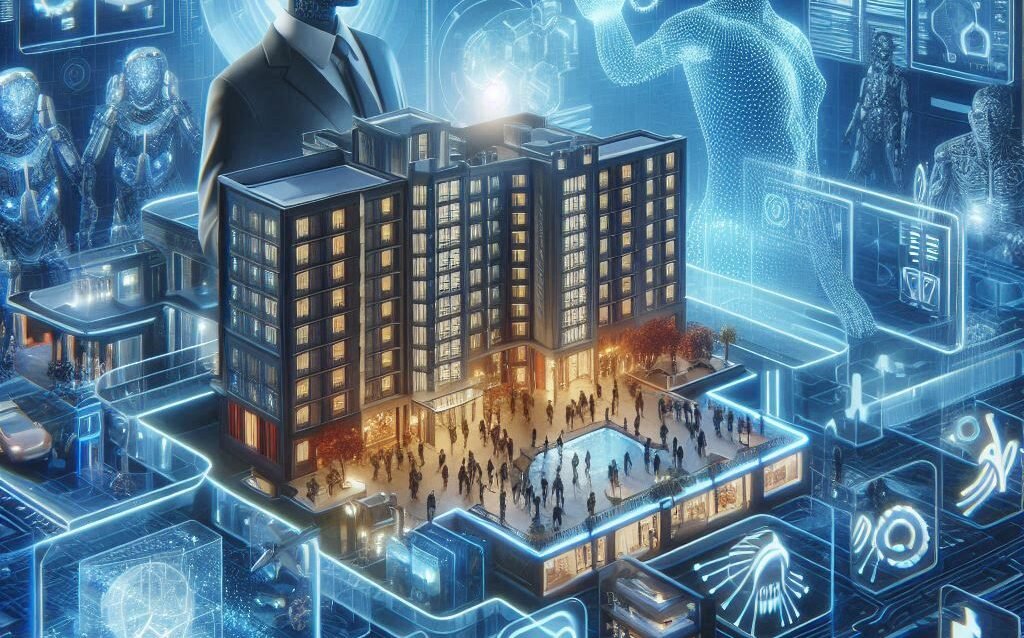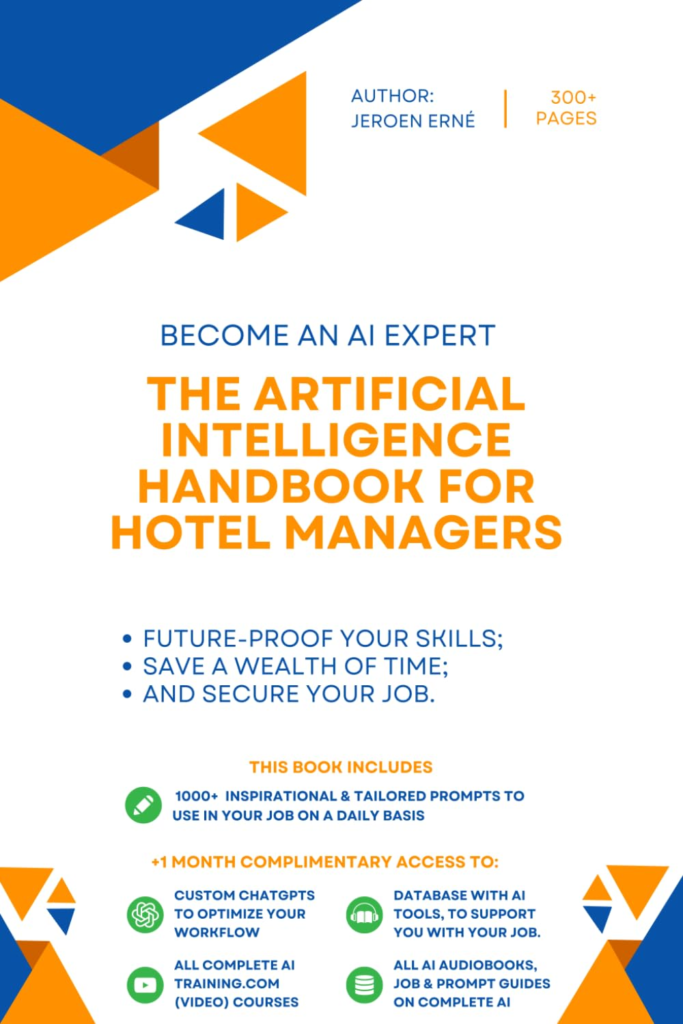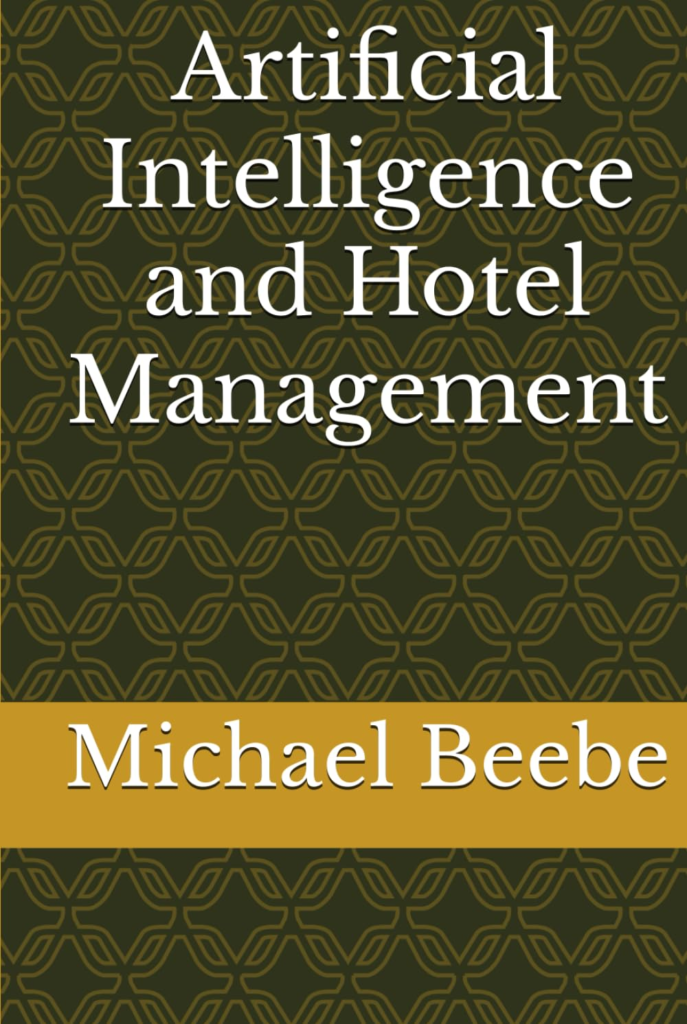Interactive AI in Hospitality
Interactive artificial intelligence (AI) represents a significant evolution in technology, particularly within the hospitality industry. This innovative form of AI enhances the interaction between machines and humans, providing personalized experiences for guests while streamlining operational procedures for businesses. The core objective of interactive AI is to create systems that can understand and respond to user inputs in a conversational and intuitive manner. By utilizing advanced algorithms and machine learning techniques, these systems are capable of interpreting voice commands, analyzing data, and even predicting guest preferences.
In the context of hotels and restaurants, the integration of interactive AI has transformed traditional customer service models. For instance, AI-powered chatbots and virtual assistants are being utilized to handle inquiries, make reservations, and provide real-time information about services and amenities. As a result, staff can devote more time to complex tasks that require human judgment and creativity, thus enhancing overall productivity and resource management.
Moreover, the applications of interactive AI extend beyond mere customer interaction. In sophisticated hotels, AI systems analyze data from guest interactions to foster personalized marketing strategies and tailor services to fit individual preferences. From smart room technologies that adjust lighting and temperature based on occupancy to predictive analytics employed in inventory management, interactive AI streamlines and enhances multiple facets of hospitality operations.
The adoption of these technologies is becoming increasingly vital due to changing consumer expectations. Modern travelers seek seamless, efficient, and customized experiences, which interactive AI is well-positioned to deliver. By providing a deeper understanding of customer behavior, hotels and restaurants can not only meet but exceed these expectations, leading to increased loyalty and satisfaction.
(Purchase today by clicking on the image)
Enhancing Guest Experience through Interactive AI
The integration of interactive artificial intelligence (AI) in the hospitality and hotel industry has revolutionized the way guest experiences are shaped. AI-driven chatbots serve as a pivotal component in enhancing customer service by providing immediate and accurate responses to inquiries. These chatbots are available 24/7, ensuring that guests can receive assistance whenever needed, thus improving overall satisfaction. By utilizing natural language processing, these systems can understand and respond to guest queries in a human-like manner, providing a seamless interaction experience.
Another significant advantage of interactive AI is its ability to deliver personalized recommendations tailored to guests’ preferences. Hotels can analyze data from previous stays, preferences expressed during online bookings, and even social media interactions to curate individualized experiences. For instance, if a guest frequently opts for vegetarian meals, the hotel’s AI system can proactively recommend local vegetarian restaurants or suggest special vegetarian menu items. This level of personalization not only enhances the guest’s experience but also increases the likelihood of repeat visits and brand loyalty.
Virtual concierges represent another innovative use of interactive AI in enhancing guest services. These digital assistants can provide information on local attractions, dining options, and hotel amenities, significantly reducing the cognitive load on hotel staff. By efficiently answering common inquiries such as room service hours, pool access, and event timings, virtual concierges free up human staff to focus on more complex tasks, improving overall service quality.
Several successful implementations of these technologies have been observed across hotels and restaurants. For example, the Hilton Hotels have adopted AI to streamline their guest services, reporting higher satisfaction rates as a direct result. Similarly, many restaurants have started utilizing AI for enhancing their customer relations, which has led to increased loyalty among diners. Such advancements signify a turning point in the hospitality sector, where interactive AI is becoming integral to crafting exceptional guest experiences.
Operational Efficiency: Streamlining Processes with AI
In the rapidly evolving landscape of the hospitality and hotel industry, interactive artificial intelligence (AI) has emerged as a transformative tool that enhances operational efficiency. By automating various routine tasks, AI not only reduces the burden on staff but also optimizes the guest experience. This section explores the significant impact of AI on operational processes within hotels and hospitality enterprises.
One of the critical areas where AI contributes to operational efficiency is in the booking and check-in processes. Traditional systems often require substantial labor input and can be time-consuming for both guests and staff. With the integration of AI-powered chatbots and virtual assistants, guests can now book rooms, modify reservations, and check in via conversational interfaces, thus streamlining these essential functions. This automation results in shorter wait times and enhances customer satisfaction while freeing hotel staff to focus on more critical service aspects.
Additionally, inventory management can be significantly improved with AI systems that employ predictive analytics. These systems analyze historical data and current trends to forecast demand accurately, enabling hotels to optimize their inventory levels, minimize waste, and reduce operational costs. For instance, a hotel chain that utilized an AI-driven inventory management system noted a 30% reduction in unnecessary stock, translating to substantial cost savings.
Data analysis for informed decision-making is another pivotal area where AI shines. By processing vast amounts of data from guest preferences, market trends, and operational performance, AI provides management with actionable insights. These insights can guide marketing strategies, pricing adjustments, and service improvements. Case studies illustrate how enterprises like Marriott and Hilton have successfully harnessed AI’s analytical capabilities, resulting in increased productivity and enhanced guest engagement.
The adoption of interactive AI in the hospitality sector marks a significant advancement towards improving operational efficiency, ultimately leading to cost savings and a better experience for guests.
Future Trends: The Evolution of AI in the Hospitality Industry
The hotel and hospitality industry is on the brink of transformative advancements driven by the continuous evolution of interactive Artificial Intelligence (AI). As technology progresses, we can expect to see significant enhancements in guest experiences, operational efficiency, and personalization in services. Predictive analytics, machine learning, and natural language processing will further refine how hotels cater to their clientele, offering tailored recommendations and real-time support, thereby enhancing customer satisfaction.
However, the journey towards a robust AI integration within the hospitality sector is not devoid of challenges. Privacy concerns, data security, and the reservation of human employment are pressing issues that need addressing. As AI systems collect and analyze vast amounts of customer data to predict preferences, maintaining ethical standards regarding data usage will be paramount. Hoteliers must ensure transparency in data collection practices and build trust with their guests to foster loyalty in a technology-driven environment.
Alongside technological advancements, guest expectations will inevitably evolve. The modern traveler increasingly anticipates a seamless blend of digital interactions and human touch. AI can assist by streamlining check-in processes or providing virtual assistants for inquiries; however, it is crucial not to overshadow the essential human connection that forms the core of hospitality. Striking a delicate balance between AI integration and the intrinsic human element will be vital for success.
To prepare for this future, hospitality businesses should invest in relevant training programs to equip staff with the necessary skills to work alongside AI technologies effectively. Additionally, developing strategic partnerships with tech providers can enhance their offerings, ensuring they stay ahead in a competitive market. As the hospitality landscape continues to shift, adaptive strategies that embrace innovation while preserving the core values of customer service will be essential for thriving in an increasingly AI-centric environment.
(Purchase today by clicking on the image)






